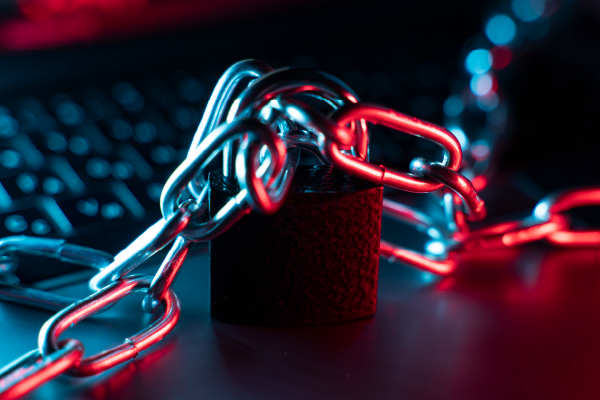It is tempting to believe that hacking and other cyber-crimes are a relatively new phenomena, but unfortunately this is not the case. In the 1970’s a small group of techies found a way to modify the software at the Bell Telephone Company, allowing them to make free long distance phone calls. The first major attack on what we could today consider to be the internet, happened in 1988. The Morris worm virus was unleashed on the network from a computer at the Massachusetts Institute of Technology (MIT). The cyber worm propagated at speed, bringing computer systems down in their thousands. Within 24 hours, an estimated 6,000 of the approximately 60,000 computers that were then connected to the network, had been infected. Shortly after, the UK government introduced the Computer Misuse Act of 1990, making such activities criminal.
Today, with the rise and rise of the internet for all aspects of our lives, cyber-crime technologies are becoming more sophisticated, and the impact of those crimes more devastating. The question is how can individuals and organisations protect themselves from the damage and loss of such attacks? The answer is cyber security.
What is Cyber Security?
Cyber security is the protection of systems, networks, applications, and data, from malicious attacks by hackers, spammers, and other cyber criminals. The aim is to protect an organisation’s valuable digital assets and infrastructure.
Cyber-attacks are usually aimed at accessing, changing, or destroying valuable data, extorting money, or interrupting the normal running of a business. Such attacks include identity theft, denial of service, ransomware, data breaches, intellectual property theft, and phishing scams. The list grows longer and gets more sophisticated every day. Cyber security is now a vital role in all businesses who have any type of online or digital profile.
The Importance of Cyber Security
Today, society is more reliant on technology than ever before. Business, health care, defence, travel, every aspect of our lives depends on the correct functioning of technology. At the same time, the amount of digital exposure we all personally have, is increasing. Personal data is being collected from social media hacks and phishing attacks, resulting in identity theft. Organisations, businesses, and government departments store enormous amounts of data about us, including sensitive information. Companies increasingly use the internet as their primary route-to-market. Transportation networks rely on live data and informatics to ensure safe and timely travel.
But unlike previous generations of crime, the criminals don’t need to scale tall buildings or dig long tunnels, they just need access to the internet. And they can do harm. Whilst the widely reported Hatton Garden safe deposit burglary of 2015 saw an estimated theft of £14m, the less well reported NotPetya cyber attack of 2017, saw losses of $10 Billion. The most expensive cyber-crime reported to date.
The Impacts of Cyber Crime
The impact of cyber-crime is wide and varied. Operational disruptions, causing part, or all of a business to cease functioning for a period of time, whilst an attack is recovered from. Reputational damage from a loss of customer’s data, causing a fall in both trade and stock market valuation. Stolen intellectual property, where loss of competitive advantage has helped rival companies to take market share. Then there are the increased costs of altering business practice to better protect against cyber-attacks, and meeting regulatory requirements. The cost of employing and maintaining the necessary cyber security resources, to reduce the threat from cyber-attacks. Finally, there is the direct financial loss, either through a ransomware attack, loss of customers, or direct theft of digital assets.
Why is Cyber Crime Increasing?
Increasing levels of digital connectivity, remote working, reliance on technology, and automation means the risk of cyber-crime is rising rapidly. The recent Covid-19 pandemic also increased the risk exposure of many businesses, through relaxed control environments, increased remote working, and subsequent use of new applications, such as Zoom.
As an indication of the scale of the problem, the leading cyber-crime researcher, Cybersecurity Ventures said in their 2020 report:
“We expect global cybercrime costs to grow by 15 percent per year over the next five years, reaching $10.5 trillion USD annually by 2025, up from $3 trillion USD in 2015. This represents the greatest transfer of economic wealth in history, risks the incentives for innovation and investment, is exponentially larger than the damage inflicted from natural disasters in a year, and will be more profitable than the global trade of all major illegal drugs combined.”
Cyber crime is rising because it is profitable and relatively low risk for the criminals. This is one reason the UK government set up the National Cyber Security Centre in 2016, to support the most critical organisations in the UK, the wider public sector, industry, SMEs, as well as the general public.
What can you do to protect your business from Cyber Crime?
Gone are the days when cyber-attacks were stopped by simply installing antivirus software and firewalls, important though these are. We wrote recently about ten ways to keep your IT systems safe and secure. Some of these are really simple things that can be done straight away, others require more planning. The important thing, however, is to take cyber security seriously and understand the risk it poses to your business.
How can Mintivo help?
To help increase your cyber security we can help. IT security audits and testing can help you understand which areas of your company IT network are potentially exposed, and create a cyber security roadmap to address any issues discovered. Our Phishing simulation and awareness offering uses regular scanning to identify newly discovered vulnerabilities, enabling you to stay one step ahead of the cyber criminals.
Mintivo uses an IASME certified partner to provide Cyber Essentials+ and ISO27001 services, this ensures that the work we do is independently reviewed and certified (we don’t sign-off our own work giving you complete peace of mind).
Whatever your existing cyber security readiness or needs, Mintivo can help improve your chances in the ever-changing fight against cyber criminals. To find out more about how we can help, please get in touch.


